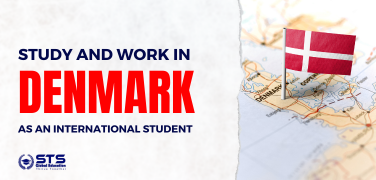Denmark is known for its high-quality education system, and there are various study and work opportunities available for international students. Here are some key aspects to consider:
Study Opportunities:
- Universities and Programs:
Denmark has several universities offering a wide range of programs in English.
Some of the prominent universities include the University of Copenhagen, Aarhus University, Technical University of Denmark (DTU), and Copenhagen Business School (CBS).
- Admission Requirements:
Typically, international students need to meet certain academic and language proficiency requirements.
English proficiency is a key requirement, and you may need to provide TOEFL or IELTS scores.
- Tuition Fees and Scholarships:
Tuition fees vary depending on the program and university.
Many Danish institutions offer scholarships for international students. Check with the specific university for available options.
- Student Housing:
Universities often assist students in finding accommodation in student residences or private rentals.
Work Opportunities:
International students are allowed to work part-time (up to 20 hours per week) during their studies and full-time during scheduled breaks.
- Post-Graduation Work Permit:
After completing their studies, international students are allowed to stay and work in Denmark for an additional period. The length of the permit depends on the duration of the completed program.
- Job Search Resources:
Utilize online job portals, networking events, and career services provided by universities to find employment opportunities.
- Language Requirements:
While many Danes speak English fluently, knowing Danish can enhance your job prospects, especially in certain sectors.
Additional Information:
- Health Insurance:
It’s mandatory for international students to have health insurance while studying in Denmark.
- Integration Programs:
Denmark offers integration programs to help international students settle into Danish society and the job market.
- Residence Permit:
Non-EU/EEA students need a residence permit to study and work in Denmark. Ensure you meet the requirements and apply in advance.
- Quality of Life:
Denmark consistently ranks high in terms of quality of life, safety, and a well-functioning welfare system.
Before making any decisions, it’s crucial to check the latest information from the official websites of Danish universities, immigration authorities, and relevant government agencies to ensure accurate and up-to-date details.




